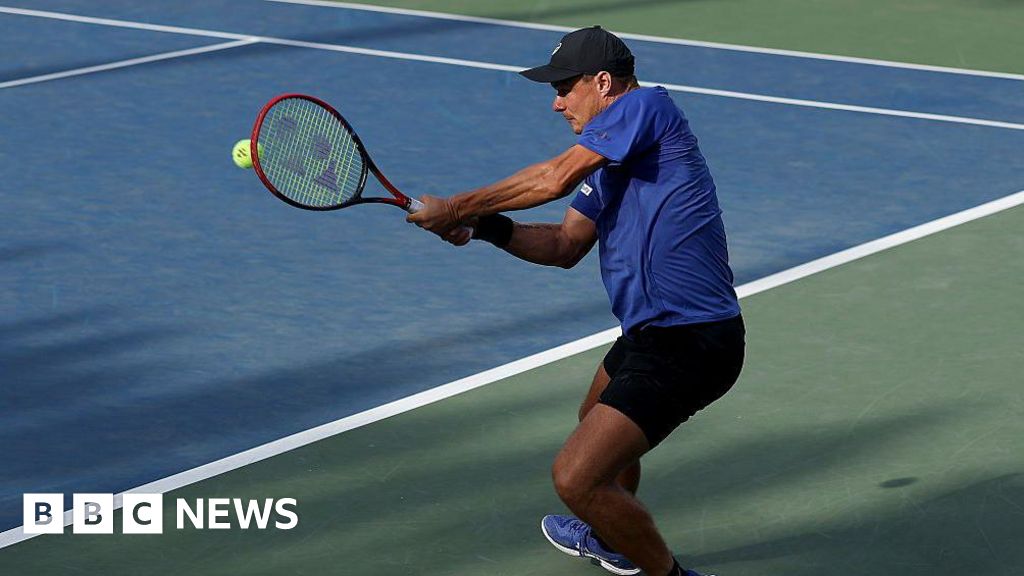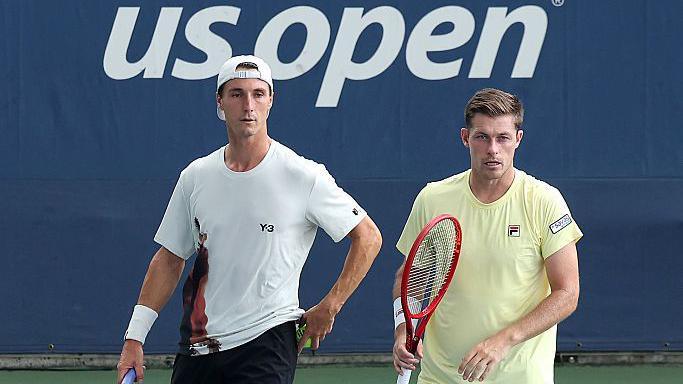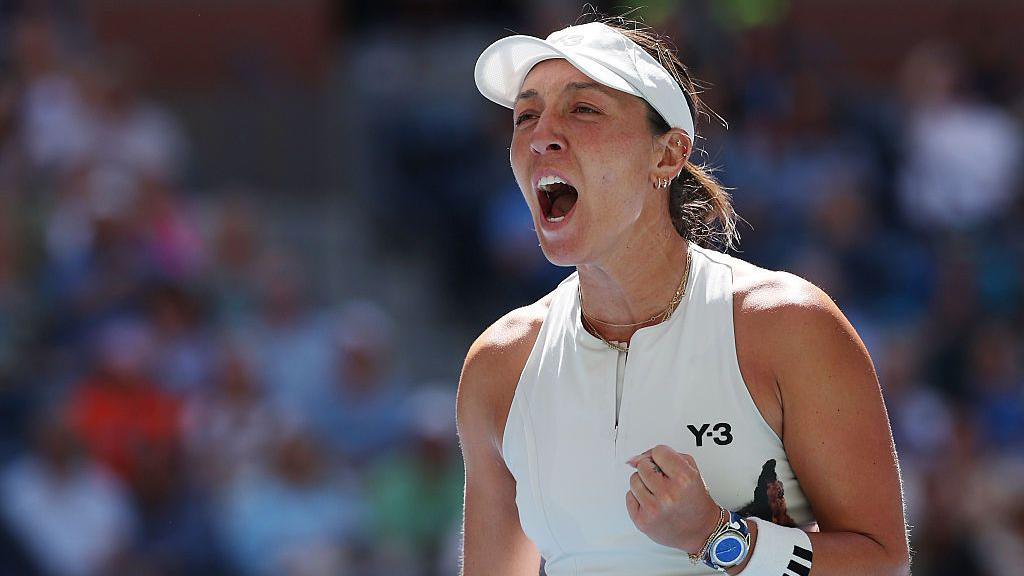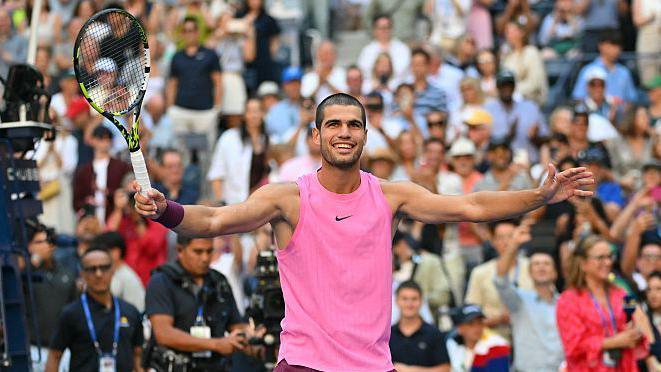-
6 hours ago
In the small confines of the US Open outside courts, it is virtually impossible for players not to hear exactly what fans are saying, even when they are focusing on a potentially career-defining match.
Shouts from courtside are almost universally supportive – but some players are starting to believe all is not what it seems.
In a peculiar New York incident, Switzerland’s Leandro Riedi reported a vocal fan to the chair umpire – for cheering him on.
Exasperated by losing a break, 23-year-old Riedi suspected the man was a bettor and decided to act.
“It feels like more and more bettors are coming to watch,” said Riedi, who has reached the last 16 in only his second Grand Slam main draw.
“Of course they can come to watch tennis if they stay on the right side of the line, but I think it is a problem which is getting bigger and bigger because of social media.
“If people come live [to matches] and support that’s nice, of course.
“But you know if you lose, one of these guys who are betting might abuse you on social media later.”
What happened in Riedi’s match?
Seeing a player launch into an on-court tirade is nothing unusual, but Riedi shouting at someone in his native language turned out to be different.
The incident, which was first spotted and reported by Bounces, came in a pivotal moment during his second-round win over Argentine 19th seed Francisco Cerundolo.
Riedi had lost the first two sets before winning the third, but had just given up a break he had earned earlier in the fourth.
One particular man – who Riedi had also spotted during his first-round victory against Spain’s Pedro Martinez – was stood in the corner of the court and bore the brunt of his frustration.
“In that moment he was saying the wrong words to me,” Riedi, who has faced online abuse from gamblers, told BBC Sport.
“He was trying to be positive but for me it was like ‘be quiet, you have nothing to do with me’, you’re just betting on me.
“He was not a Swiss guy and he was always on his phone. So for me… he’s probably a bettor.
“In that moment I just didn’t want to see or hear this guy.”
Following his outburst, Riedi told chair umpire Scotty Moore about his suspicions.
Riedi claims both Martinez and Cerundolo – who could not be contacted by BBC Sport – also thought the fan was a bettor.
The man left the court by “his own volition”, according to the United States Tennis Association (USTA), and was not escorted out by security.
“Maybe I’m wrong, but I feel I’m correct because I’ve experienced it enough – that he was betting,” said Riedi.
“If he really is a supporter and he didn’t bet then I’m truly sorry, but I have a gut feeling he was a bettor.
“I told the umpire if I lose, this guy will text and say ‘I hope your mother dies’. This has happened too many times.”
Tennis deals with gambling firm should ‘stop’
Like all sports, tennis has started to count on betting sponsorships as a substantial source of income.
As high-profile players have campaigned for more prize money and a greater share of sponsor revenue, governing bodies and tournaments have demonstrated an increased willingness to work with gambling firms.
In February, the International Tennis Federation (ITF) extended its deal with Stake – the company which also sponsors sports teams including the Sauber Formula 1 team, and Everton – as the official betting partner of the Davis Cup and Billie Jean King Cup.
In 2023, the Women’s Tennis Association (WTA) signed a multi-year agreement with online gaming company FanDuel Group, while the Madrid Open, the Miami Open and Swedish Open are sponsored by Betway.
Riedi feels these sponsorship deals are not appropriate.
“Personally I think it should stop,” he said. “Because the [bettors] feel like if [companies] are sponsoring tennis events then it is fine to do it.”
Tournaments are played all around the world throughout most of the year, making tennis one of the most popular sports for regular gamblers to bet on.
A source at one of the world’s largest multi-platform gambling operators recently told the BBC that more than £100m is wagered on tennis matches worldwide each day.
“It is tough. I get it for the people who want to bet – if they want to bet they can bet,” said Riedi.
“There are many people betting and they aren’t writing to you – that’s fine.
“You can’t forbid betting. But the [authorities] need to do something to stop the social media abuse.”
How rife is abuse from gamblers?
An increasing number of players have started to speak out about the scale of abuse they face from gamblers.
When Britain’s Katie Boulter revealed the nature of the messages she receives on social media, she emphasised that many feature references to gambling.
Angry gamblers were behind 48% of 12,000 social media posts deemed abusive towards tennis players in 2024, according to an artificial intelligence-led detection system.
The ITF, WTA, USTA and All England Lawn Tennis Club joined forces at the end of last year to launch a programme that monitors posts on X, Facebook, Instagram, TikTok and YouTube.
Like most players, Riedi has received hundreds of message which are “tough” to see.
“I just don’t see how can you even think about texting ‘I hope you die’ or ‘I hope you get cancer’ to a player – that’s just so wrong,” he added.
“When I played at Wimbledon, I lost in the main draw and one guy did a [Instagram] story of me and wished me to die – for five days in a row.
“I’m not crying about it but I saw it because he was tagging me. It needs to stop.”













